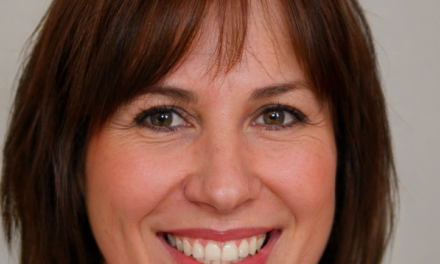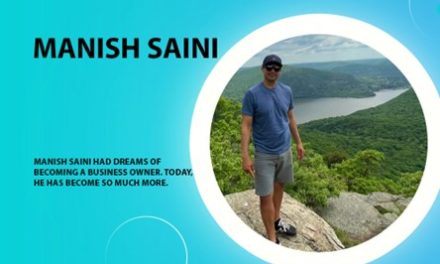Tom Cruz is a real estate entrepreneur who began his real estate journey in 2012 with a focus on the wholesale market. Identifying a pressing need for affordable housing in Wilmington, NC, he concentrated on acquiring properties priced at $100,000 or less to support the Section 8 HUD program. Starting with limited capital, Tom Cruz used creative financing strategies to build his initial portfolio. After securing around five properties, he began partnering with investors, leading to a pivotal $250,000 joint investment that allowed him to acquire 15 more properties. His consistent success in the Section 8 market quickly built his reputation for delivering reliable returns, attracting the funding needed to further expand his holdings.
Today, Tom Cruz manages over 700 rental units, generating more than $950,000 in monthly net passive income. In 2021, he launched the Section 8 Secrets program, designed to guide new investors through the complexities of Section 8 properties. Known for its practical and straightforward approach, the program has already assisted over 500 aspiring investors, with 83% securing their first property within 60 days of joining.
In response to the evolving market, Tom Cruz developed the Section 8 Pro software in 2023. This tool simplifies the property acquisition process by assessing crucial factors such as condition, location, crime rate, and cash flow. Through personalized coaching, consulting, and easy-to-follow tutorials, Tom Cruz has established himself as a top mentor in the Section 8 real estate space, empowering countless investors to navigate and succeed in affordable housing investments. Tom Cruz recently got into the luxury real estate market and is doing equally as well as he has done in the low-cost market.
You’ve built an impressive portfolio of over 700 Section 8 rental units. Can you tell us about the strategies you used to scale your business to this level?
Scaling to 700 units took discipline and strategic partnerships. Early on, I focused on acquiring properties valued at $100,000 or less, using creative financing such as leveraging private lenders and hard money loans. Once I hit five properties, I brought in a partner with a $250,000 investment, allowing me to purchase 15 more properties. From there, it was about reinvesting cash flow and systematically adding new units. I always prioritized steady growth and ensuring each property met the Section 8 requirements for guaranteed rental income.
Section 8 housing is a niche many investors overlook. What inspired you to focus on this sector, and how has it shaped your real estate career?
I chose Section 8 housing because it offers guaranteed income, which is rare in real estate. The government covers most or all of the rent, so there’s less risk of vacancy or non-payment. I also saw a growing need for affordable housing, which meant demand would be stable long-term. Focusing on this niche allowed me to scale faster while minimizing risk. Over the years, I’ve built relationships with local housing authorities and gained expertise in managing the nuances of Section 8 properties, which has been key to my success.
Your recent purchase of a luxury home in Miami made headlines. How did your success in Section 8 housing enable you to achieve this personal milestone?
The success I’ve achieved through Section 8 housing absolutely made this personal purchase possible. By building a strong portfolio of over 700 rental units, I was able to generate more than $950,000 in monthly passive income. This steady cash flow allowed me to invest in my personal life as well as in real estate. My home is a reflection of the hard work I’ve put into the Section 8 market.
Many investors struggle with acquiring their first properties. What advice would you give to someone just starting in real estate, especially in the affordable housing market?
Start small and focus on cash flow. It’s tempting to go after big deals, but getting your first property is all about finding something manageable with strong rental potential. Look for properties under $100,000 in areas with stable demand for affordable housing. Use creative financing like FHA loans or private lending if you lack capital. Once you have your first property, reinvest the profits into more properties. Also, focus on Section 8, as it offers guaranteed rent payments, making it a less risky entry point for beginners.
You’ve created the Section 8 Secrets coaching program, which has helped hundreds of investors get started in this niche. What prompted you to develop this program, and what impact has it had on the industry?
I launched the Section 8 Secrets program because I saw a huge gap in education around affordable housing. Many investors didn’t understand the benefits of Section 8, and I wanted to demystify the process. The program breaks down how to acquire, manage, and profit from Section 8 properties in a practical, step-by-step format. Over 500 investors have gone through the program, and 83% acquired their first property within 60 days. It’s helped bring more awareness to the affordable housing market and provided a clear path for new investors to enter the space successfully.
In 2023, you launched Section 8 Pro, a tool designed to help investors streamline property acquisitions. How does this software simplify the process for investors?
Section 8 Pro was designed to help investors easily identify and acquire Section 8 properties. The software evaluates key factors like location, crime rate, cash flow potential, and property condition, which are critical for making informed investment decisions. It eliminates guesswork and speeds up the research process, allowing investors to find viable properties faster. Section 8 Pro also includes tools for managing properties, calculating ROI, and tracking rental payments, making it a one-stop solution for both new and experienced investors. It’s part of my mission to simplify the investment process and expand access to affordable housing opportunities.
As someone who built a successful business with limited capital in the beginning, what financing strategies do you recommend for new investors with similar constraints?
For new investors with limited capital, creative financing is key. I started by using private lenders and hard money loans, which allowed me to acquire properties even when I didn’t have much cash on hand. You can also explore FHA loans, which require lower down payments, or seek out seller financing opportunities. Networking is crucial – find people willing to partner or invest in your vision. Once you acquire a few properties, reinvest the profits into new ones, gradually building your portfolio. The goal is to leverage other people’s money to get started and scale.
What are the most common misconceptions about Section 8 housing, and how do you educate new investors to overcome these misunderstandings?
A common misconception is that Section 8 tenants are difficult to work with or that the properties will face constant damage. In reality, Section 8 tenants are just like any other renters, and many take pride in having stable housing. Another misconception is that the paperwork and inspections are overly complicated, but once you understand the process, it becomes routine. I educate new investors by simplifying the guidelines, providing templates, and sharing my experiences through my coaching program. I also stress the importance of good property management and tenant screening, which are key to success in any market.
Looking ahead, what are your plans for further expanding your portfolio, and how do you see the Section 8 housing market evolving in the coming years?
I plan to continue expanding my Section 8 portfolio, particularly in markets where affordable housing is in high demand. The Section 8 market is poised for growth as housing affordability becomes a bigger issue nationwide. With rising property values and rents, more people will need government assistance, so demand for Section 8 rentals will only increase. I’m also exploring ways to streamline operations with more technology, like property management tools and data analysis software. My goal is to maintain steady growth while improving efficiency, ensuring that my business adapts to future market trends.
Beyond real estate, what personal goals or interests do you have as you continue your career, particularly after achieving such a significant personal milestone with your recent home purchase?
Personally, I’m focused on spending more time with my family and enjoying the Miami lifestyle, now that we’ve settled into our new home. I’m also passionate about mentoring and giving back, which is why I’ve put so much effort into my coaching programs. Helping others achieve financial independence through real estate has been one of the most rewarding aspects of my career. Overall, achieving financial freedom has allowed me to pursue these personal interests, and I plan to continue balancing my professional and personal life.




